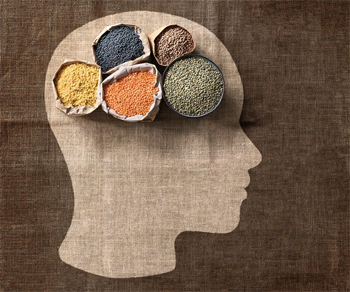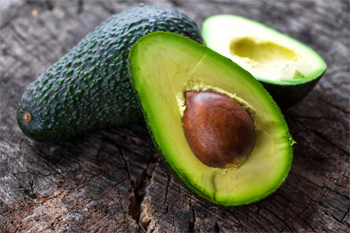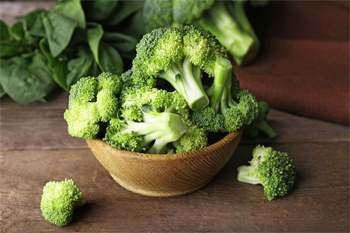10 Brain Foods Everyone Should be Eating

10 Brain Foods Everyone Should be Eating
Nourish your noggin with these ten nutritious brain foods.
We all know that food affects how we feel and how we look. But now more than ever, we're learning that what we eat affects how we think. Eating nutrient-dense foods rich in antioxidants, healthy fats, vitamins, and minerals doesn't just fuel us in a purely physical way – it help us grow new brain cells while warding off illnesses such as depression and dementia.
By nourishing our physical brains, we can actually nourish our minds as well.
Forget bikini bodies – spring's the perfect time to slot more of these ten nutritional powerhouses into your diet.
Lentils
We love lentils! 1 cup of lentils contains a whopping 90% of your daily recommended intake of folate, a vitamin responsible for regulating DNA and producing neurotransmitters such as serotonin, dopamine, and norepinephrine to regulate your mood, sense of pleasure, and clarity. Kate, our recipe elf and resident vegan, loves their rich hearty flavour. Plus, lentils are a hefty source of magnesium, a mineral responsible for stimulating brain growth and controlling blood sugar.
Try: Lentil Rigatoni Bolognese
 Avocado
Avocado
The avocado's creamy green flesh is full of healthy monounsaturated fats which help lower blood pressure and support cognitive function. Not only is it a healthy fat of course, but it's delicious!
Try: Loaded Avocado Toast
Salmon
This fatty fish makes us (o)MEGA happy thanks to its high concentration of nervonic acid (a monounsaturated fat) and omega-3 (a polyunsaturated fat), both of which help insulate and stimulate brain cells.
When you aren't getting enough [omega 3 fatty acids], you can experience fatigue, poor focus, and memory issues. Not only does salmon increase your focus and allow you to better absorb information, but it can also help fight depression and anxiety – a fishy friend that's good to have to be sure.
Try: Parmesan-Crusted Salmon with Potatoes & Green Beans
Beetroot
These deep red root vegetables are chock-full of natural nitrates to boost blood flow to the brain and improve cognitive performance.
Try: Lentil & Beetroot Salad with Fetta
 Rosemary
Rosemary
This bold herb, (which is actually part of the mint family!), is a fragrant source of antioxidant-rich phytonutrients which help enhance memory and concentration by facilitating blood flow to the brain.
Try: Rosemary Pork with Fragrant Pear & Prunes
Spinach
Turns out Popeye was onto something. The high concentration of Vitamin K in this dark green leafy vegetable ensures your brain receives oxygen and helps insulate brain cells.
Try: Paneer & Spinach Curry
Turmeric
This super spice gets its signature yellow hue from curcumin, a potent anti-inflammatory ingredient that prevents plaque buildup in the brain.
Try: Turmeric Chicken with Indian Potatoes
 Broccoli
Broccoli
This beloved (well – except by George Bush senior) cruciferous vegetablee is an essential source of choline, a nutrient that boosts your mood, energy, and focus while improving memory. It has also been shown to prevent cognitive decline by regulating inflammation.
Try: Herbed Pork & Broccoli Conchiglie
Olive Oil
This kitchen staple contains hydroxytyrosol, a phythonutrient prized for its ability to protect the lining of blood vessels and oxygen supply to the brain. For an extra nutritional boost, use extra virgin olive oil in salad dressings or dips.
Yoghurt
It's no surprise that fermented foods make for a happy gut, but you may be surprised to learn that probiotic-rich foods also support brain function. In fact, bacteria in the gut produces two essential neurotransmitters, serotonin and dopamine.
But be careful: not all yoghurts are made equal. Make sure to avoid the pre-sweetened varieties at the grocery store and opt for unflavoured types instead. We promise yoghurt is delicious without all that sugar.
Good luck, brainiacs!
HelloFresh.com.au
We all know that food affects how we feel and how we look. But now more than ever, we're learning that what we eat affects how we think. Eating nutrient-dense foods rich in antioxidants, healthy fats, vitamins, and minerals doesn't just fuel us in a purely physical way – it help us grow new brain cells while warding off illnesses such as depression and dementia.
By nourishing our physical brains, we can actually nourish our minds as well.
Forget bikini bodies – spring's the perfect time to slot more of these ten nutritional powerhouses into your diet.
Lentils
We love lentils! 1 cup of lentils contains a whopping 90% of your daily recommended intake of folate, a vitamin responsible for regulating DNA and producing neurotransmitters such as serotonin, dopamine, and norepinephrine to regulate your mood, sense of pleasure, and clarity. Kate, our recipe elf and resident vegan, loves their rich hearty flavour. Plus, lentils are a hefty source of magnesium, a mineral responsible for stimulating brain growth and controlling blood sugar.
Try: Lentil Rigatoni Bolognese
 Avocado
AvocadoThe avocado's creamy green flesh is full of healthy monounsaturated fats which help lower blood pressure and support cognitive function. Not only is it a healthy fat of course, but it's delicious!
Try: Loaded Avocado Toast
Salmon
This fatty fish makes us (o)MEGA happy thanks to its high concentration of nervonic acid (a monounsaturated fat) and omega-3 (a polyunsaturated fat), both of which help insulate and stimulate brain cells.
When you aren't getting enough [omega 3 fatty acids], you can experience fatigue, poor focus, and memory issues. Not only does salmon increase your focus and allow you to better absorb information, but it can also help fight depression and anxiety – a fishy friend that's good to have to be sure.
Try: Parmesan-Crusted Salmon with Potatoes & Green Beans
Beetroot
These deep red root vegetables are chock-full of natural nitrates to boost blood flow to the brain and improve cognitive performance.
Try: Lentil & Beetroot Salad with Fetta
 Rosemary
RosemaryThis bold herb, (which is actually part of the mint family!), is a fragrant source of antioxidant-rich phytonutrients which help enhance memory and concentration by facilitating blood flow to the brain.
Try: Rosemary Pork with Fragrant Pear & Prunes
Spinach
Turns out Popeye was onto something. The high concentration of Vitamin K in this dark green leafy vegetable ensures your brain receives oxygen and helps insulate brain cells.
Try: Paneer & Spinach Curry
Turmeric
This super spice gets its signature yellow hue from curcumin, a potent anti-inflammatory ingredient that prevents plaque buildup in the brain.
Try: Turmeric Chicken with Indian Potatoes
 Broccoli
BroccoliThis beloved (well – except by George Bush senior) cruciferous vegetablee is an essential source of choline, a nutrient that boosts your mood, energy, and focus while improving memory. It has also been shown to prevent cognitive decline by regulating inflammation.
Try: Herbed Pork & Broccoli Conchiglie
Olive Oil
This kitchen staple contains hydroxytyrosol, a phythonutrient prized for its ability to protect the lining of blood vessels and oxygen supply to the brain. For an extra nutritional boost, use extra virgin olive oil in salad dressings or dips.
Yoghurt
It's no surprise that fermented foods make for a happy gut, but you may be surprised to learn that probiotic-rich foods also support brain function. In fact, bacteria in the gut produces two essential neurotransmitters, serotonin and dopamine.
But be careful: not all yoghurts are made equal. Make sure to avoid the pre-sweetened varieties at the grocery store and opt for unflavoured types instead. We promise yoghurt is delicious without all that sugar.
Good luck, brainiacs!
HelloFresh.com.au
MORE
- Best Snacks For Brain Health
- Antoinette-Louise Barnardo Swisse Kids Health...
- How to Eat Healthy
- 5 Natural Energy-Boosting Habits
- Dr. Ross Walker How Food Can Help With Heart...
- Top 5 Nutrient Boost Tips
- 10 Brain Foods Everyone Should be Eating
- Lee Holmes 2017 Health Trends Interview
- PureBred Seven Day Gluten-Free Challenge
- Study Suggests Poor Quality Diet Linked To...
- I Quit Sugar for Life
- Mad For Health 8 Food Myths
- Never Be Tempted Out Of Your Gluten-Free Diet...
- Melanie McGrice AIA Healthier Habits in 2014...
- Natural Remedies The Latest Buzz For Bites You
- Bosisto's Lavender Packs
- Chillax Natural Sleep Drink
- Beaming with Health Nighty Night
- Blackmores Eco-Krill
- Pamela Hore Bring It To The Table Interview
- Professor Kerin O'Dea Intervention on...



